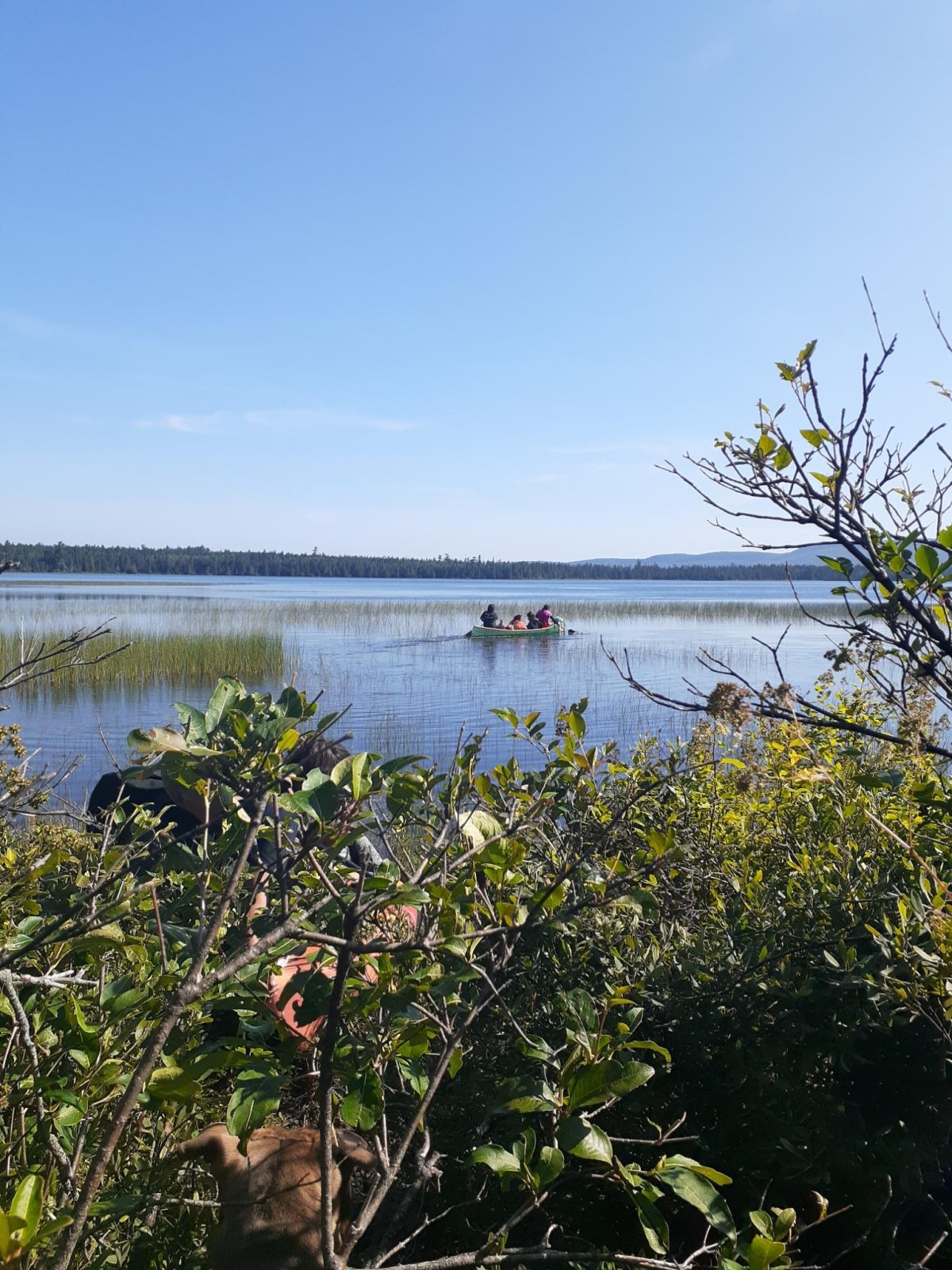About a dozen Wolastoqewi mothers and grandmothers spent Tuesday taking turns canoeing on the water at Miramichi Lake.

While the group took advantage of ideal weather conditions, the activities had a purpose.
Since they remained on the water, the planned eradication program for smallmouth bass in the lake could not start.
A working group, led by the North Shore Micmac District Council, was scheduled to begin spraying Noxfish II, a pesticide, into the water to kill smallmouth bass, which are considered an invasive species. They say the fish is competing for habitat and prey with native fish and other species.
The pesticide is also due to be applied to Lake Brook and a 17.2 km section of the Miramichi River.
READ MORE: Delay sought in Miramichi Lake smallmouth bass eradication
The Wolastoqewi mothers and grandmothers say they were not consulted properly on the plan, which involves unceded territory.
Grandmother Ramona Nicholas said members of several First Nations are concerned about the process, having only learned of the pesticide program over the weekend.
“We know that this wasn’t something that our community was aware of,” Nicholas said, from the shore of Miramichi Lake. “So when we found out this was happening, we decided to take a bit of initiative and came out here because we wanted to make sure that we’re protecting.”
Nicholas said peace officers in the area threatened to charge participants with violating the Fisheries Act if they proceeded, but she said no action was taken.
Other opponents, including cottage owners, argue the eradication plan won’t work because smallmouth bass have spread beyond the area targeted for spraying. They also believe the damage from the pesticide will be more widespread.
Cottage owner Barb Hildebrand told Global News Monday that the Department of Fisheries and Oceans has admitted the eradication will not be successful.
Daniel Houghton said he won’t return to his cottage with his family for the rest of the summer if the plan goes ahead because of fears over the safety of the water.
“When I left there, it was kind of like saying, ‘see you later’ to someone who was ill in the hospital,” Houghton said. “We weren’t sure if the next time we see them was going to be better or worse.”
- Ontario takes action against chemical plant after Aamjiwnaang First Nation residents fell ill
- High benzene levels detected near Ontario First Nation for weeks, residents report sickness
- Enter at your own risk: New home security camera aims paintballs at intruders
- Beijing orders Apple to pull WhatsApp, Threads from its China app store
Houghton said the working group needed to look at other alternatives that would not involve poisoning the water supply. He said fishermen should have been allowed to fish the area without quotas.
READ MORE: N.S. proposes using pesticide to kill invasive smallmouth bass in St. Marys River
Nicholas said her members will stay on the water as long as is necessary to get the answers they say they deserve.
“We have a lot of issues with First Nations communities all over Canada that have trouble with having poisoned water,” Nicholas said. “We want to make sure that we’re doing right for the future generations.”
Nicholas and Houghton say no spraying appeared to take place by Tuesday afternoon.
The Department of Natural Resources and Energy Development deferred comment to the Department of Justice and Public Safety, which redirected Global News to the working group. The working group did not respond to requests for an update.





Comments